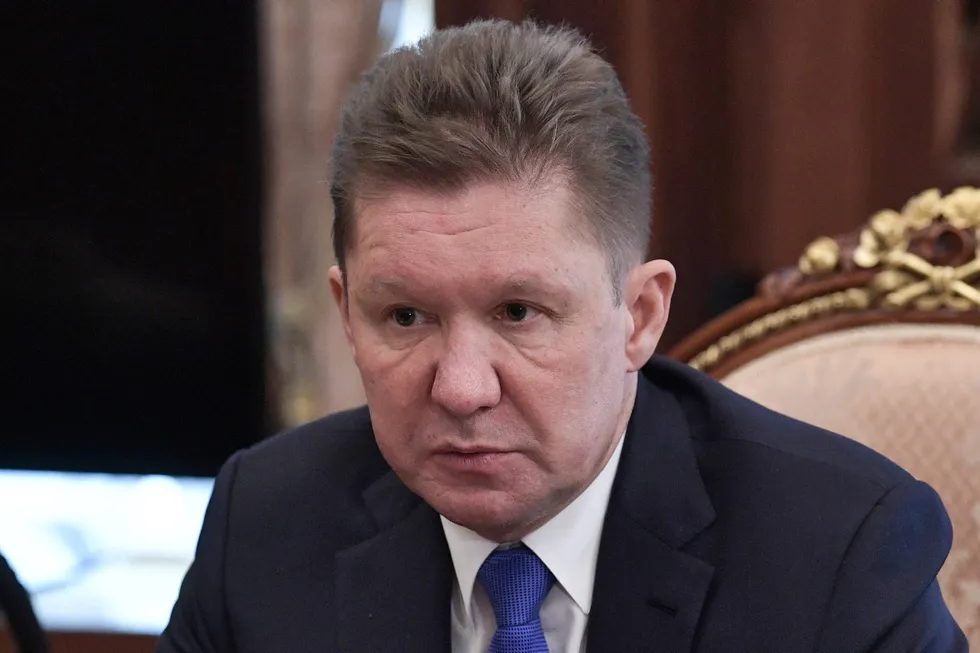Gazprom ego bruised by Dutch court ruling
Gas giant’s use of ‘alter ego’ legal doctrine in Russia backfires as Netherlands court rules company’s assets can be impounded in action against Russian government

Russia’s attempts to retailiate against Western companies that exited the country following its invasion of Ukraine have backfired after a Netherlands court rejected Russian gas giant Gazprom’s appeal against an order to impound its 50% stake in a Dutch venture.
The Russian government, Gazprom’s subsidiaries and other state run players have targeted subsidiaries of Western companies and banks operating in the country, seizing their assets in Russia on presidential and court orders since the invasion in early 2022.
However, Gazprom has found that its tactics can also backfire, with a district court in The Hague upholding an earlier ruling by a Ukrainian court against the Russian state controlled company, and ordering Gazprom’s stake in gas producer Wintershall Noordzee to be impounded.
In March, Gazprom invited bids for its stake in Wintershall Noordzee which is its 50:50 joint venture with Wintershall Dea.
Wintershall Noordzee’s portfolio includes shareholdings in 33 offshore licences in the Netherlands, the UK and Denmark, with 36 known fields, the largest producers of which are Sillimanite, a UK-Dutch cross-border field, and Wingate in the UK southern North Sea.
In May this year, a court in the city of Zaporizhiya in Ukraine ordered the Russian government to pay compensation to little-known investment firm Slavutich-Invest.
Slavutich-Invest had sought compensation of just over $15 million from the Russian government over plots of land in the Zaporizhiya region that were handed over to unidentified commercial entities without compensation after Russian forces occupied the area soon after the invasion in February 2022.
A Ukrainian court ruled that Gazprom could be held liable for the compensation on behalf of the Russian government because of the state’s controlling interest in the gas producer, with Gazprom sharing responsibility for acts of its parent.
It said that Gazprom entities, as ‘alter egos’ of the Russian government, “are jointly… liable for the debts” of the Russian government, including compensation the government has been ordered to pay.
The ‘alter ego’ doctrine is a legal rule that regards a company and its owners as the same, according to the LSD.Law resource.
At the end of August, the Dutch court backed the Ukrainian ruling, as Slavutich-Invest chased Gazprom’s remaining assets in Europe.
The Dutch court also said that “Gazprom has not sufficiently demonstrated that under Russian law the claim alleged by Slavutich-Invest, is not eligible for an award”.
Russian courts had previously used the ‘alter ego’ doctrine when confiscating the Russian assets of Western companies and their affiliates, despite the Russian affiliates having no relation to contracts terminated by their parent companies.
In one example earlier this year, a Russian court backed its use to enable Gazprom’s Ruskhimalliance joint venture to confiscate various assets and companies in the country in which Linde is a direct or indirect shareholder, after the German industrial specialist withdrew from its contract for the Baltic LNG project in 2022 to comply with international sanctions.
A Russian corporate lawyer told Upstream that, while Russian courts may have acted “according to the letter of the law, they have disregarded the spirit of the law” in their use of the ‘alter ego’ doctrine against Western companies.
Slavutich-Invest has been contacted for comment
(Copyright)